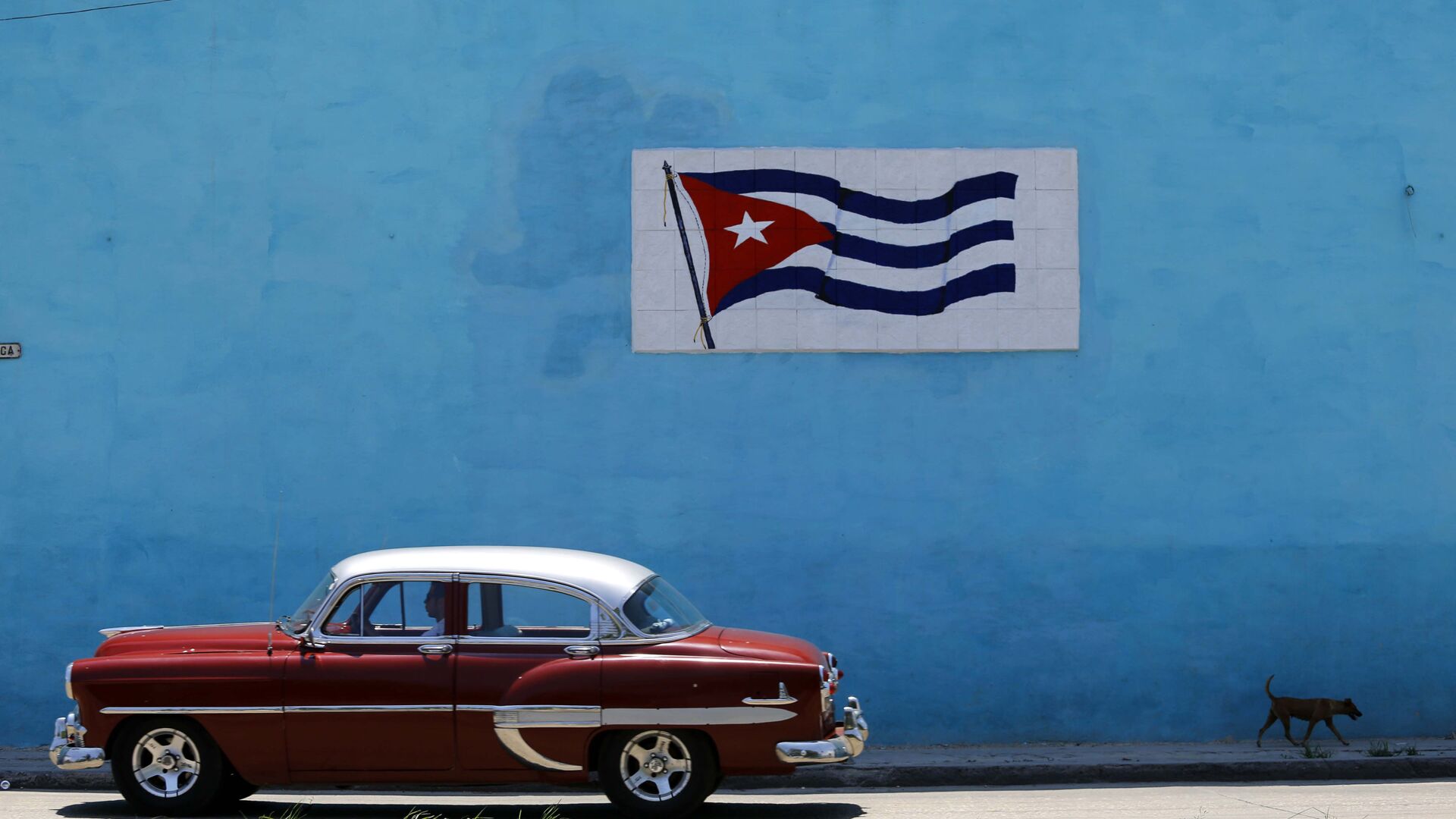By Vote of 185-2, UN Condemns US Embargo of Cuba for 30th Year in a Row
20:45 GMT 03.11.2022 (Updated: 08:57 GMT 15.11.2022)

© AP Photo / Desmond Boylan
Subscribe
The United Nations General Assembly voted on Thursday to condemn the US blockade of Cuba, which has been in place since shortly after a socialist revolution swept the US-backed government out of power in 1959.
In the vote, 185 nations came out against US policy. The only two countries to vote against the resolution were the United States and Israel. Two nations also abstained from the vote: Ukraine, where a US-backed nationalist government has held power since a coup in 2014, and Brazil, where the anti-communist government of Jair Bolsonaro has two months left in power.
BREAKING NEWS: The world once again overwhelmingly opposes the US embargo on Cuba by a UN vote of 185 to 2 (US and Israel). US is stands alone in its cruel policy to harm the Cuban people. #LetCubaLive pic.twitter.com/LCtl9vP8Oy
— Medea Benjamin (@medeabenjamin) November 3, 2022
A notable change was Colombia, a longtime US ally that has typically abstained from the vote, but which voted against the blockade on Thursday. Gustavo Petro, Colombia’s first-ever left-wing president, won the August elections and brought with him significant changes in government policy when he took office.
Demonstrators protested outside the White House a day before the vote, carrying signs saying “Let Cuba Live” and calling for an end to the blockade.
Progressive activists from around the DMV gathered today to demand that Biden listens to the hundreds of other countries that have demanded the U.S. cease the blockade on 🇨🇺Cuba!
— Party for Socialism and Liberation - Washington DC (@PSLdc) November 2, 2022
Up with the people! Down with the blockade! pic.twitter.com/6BZ42XB63I
‘Bring About Hunger, Desperation and Overthrow’
It was the 30th year in a row that the UN has voted to condemn the US’ actions - every year since 1992. However, the blockade was put in place in late 1960, as the new Cuban government under communist leader Fidel Castro edged closer to the Soviet Union after being snubbed by the Eisenhower administration in Washington.
That year, a US Department of State memorandum summarized the US government’s goal of overthrowing Castro, which it acknowledged enjoyed the support of the majority of the Cuban population.
“The only foreseeable means of alienating internal support is through disenchantment and disaffection based on economic dissatisfaction and hardship,” the memo said. It recommended a policy that would be "adroit and inconspicuous as possible" while aiming to deny "money and supplies to Cuba, to decrease monetary and real wages, to bring about hunger, desperation and overthrow of government."
Cuba-US relations have ebbed and flowed since, including a notable rapprochement in 2015 that quickly ended when Donald Trump became president and introduced 243 new sanctions on Cuba, but the embargo has never been relaxed.
‘An Act of Economic War’
Cuban Foreign Minister Bruno Rodriguez presented a report to the UN last month stating that the blockade had cost Cuba $154.2 billion since 1960, and that during the first 14 months of US President Joe Biden’s administration, it caused $15 million in damages every day.
“For over six decades, we have resisted a ruthless, unilateral, economic, commercial and financial blockade, extremely intensified to unprecedented levels since 2019 and during the pandemic,” Rodríguez told the UNGA during its regular session in late September.
“The US government has put additional pressures on governments, banks and business people worldwide, interested in relations with Cuba. All our sources of revenue and the inflow of foreign currency are being obsessively persecuted with the aim of provoking economic collapse. As a result, the Cuban economy has come under huge pressures affecting industry; the provision of services; creating shortages of food and medicines and undermining consumption and the general well being of the population,” Rodriguez said.
“The human damage to all the Cuban families this policy has generated, impossible to quantify, is stark, real and significant,” he added. “The blockade is an act of economic war in times of peace.”



